This article was co-authored by Robert Dhir, MD. Dr. Robert Dhir is a board certified Urologist, Urological Surgeon, and the Founder of HTX Urology in Houston, Texas. With over 10 years of experience, Dr. Dhir’s expertise includes minimally-invasive treatments for enlarged prostate (UroLift), kidney stone disease, surgical management of urological cancers, and men’s health (erectile dysfunction, low testosterone, and infertility). His practice has been named a Center of Excellence for the UroLift procedure, and is a pioneer in non-surgical procedures for ED using his patented Wave Therapy. He earned his undergraduate and medical degrees from Georgetown University and was awarded honors in pre-medical studies, urology, orthopedics, and ophthalmology. Dr. Dhir served as chief resident during his urological surgical residency at University of Texas at Houston / MD Anderson Cancer Center in addition to completing his internship in general surgery. Dr. Dhir was voted Top Doctor in Urology for 2018 to 2019, one of the top three Best Rated Urologists in 2019 & 2020 for Houston Texas, and Texas Monthly has named him to the 2019 & 2020 Texas Super Doctors Rising Stars list.
There are 23 references cited in this article, which can be found at the bottom of the page.
This article has been viewed 265,912 times.
If you and your partner are trying to have a baby, maximizing your sperm count will help to increase your chances of success. Fortunately, there are several ways you can increase your sperm count, improve the quality of your sperm, and improve you and your partner’s chances of conception. If you’re worried about having a low sperm count, or you’re considering taking supplements to boost your sperm count, talk to your doctor first to make sure there aren’t any underlying issues that need to be addressed.
Steps
Maintaining a Healthy Lifestyle
-
1Eat a well-balanced diet to give your body the nutrition it needs. Following a well-balanced diet will make sure that you’re getting enough nutrients for your body to make as much sperm as possible.[1] Being overweight is associated with a reduced sperm count,[2] and a nutritious diet will help you maintain a healthy weight. You’ll also have enough vitamins and antioxidants to ensure that the sperm your body does make is healthy.[3]
- Write down a meal plan that you can use to organize your food and stick to a healthy diet.
- Avoid fatty, sugary, and salty foods.[4]
-
2Exercise regularly to maintain a healthy weight. Being overweight puts extra strain on your body and reduces your sperm count. Stick to a regular exercise regimen to help you control your weight and improve your overall health. Exercise may also increase the level of antioxidant enzymes in your body, which can boost your sperm count.[5]
- Try to get 30 minutes of exercise 3-5 times a week, such as walking, running, swimming, or playing sports.[6]
- Mix up your routine with some strength training, such as weight lifting, to build muscle and burn fat.
-
3Find ways to reduce your stress so your body makes more sperm. When you’re stressed out, your body releases hormones that lower your sex drive, reduce your sperm production, and damage the sperm that your body does make. Identify the stressors in your life so you can work to avoid them or be prepared to deal with them in a way that minimizes your overall stress.[7]
- For instance, if you get stressed out at work, come up with strategies to help you avoid getting overly stressed such as taking a break in your car to listen to music or treating yourself to a nice lunch.
- A few stress-managing strategies you can try include: relaxation techniques such as deep breathing, yoga, meditation, visualizing calming images, progressive tensing and relaxing the different muscle groups in your body, massage, and music or art therapy.
- If you’re struggling to manage the stress in your life, see a counselor or join a support group for help dealing with it.
-
4Get 7-8 hours of restful sleep each night to boost your sperm production. Lack of sleep will reduce the amount of sperm that your body makes as well as reduce the quality of sperm that you do make. Most people need at least 7 hours of sleep each night. Make sure you get as much restful sleep as you need to feel refreshed. You can improve your sleep habits by:[8] [9]
- Going to bed at the same time every night.
- Reducing your caffeine, nicotine, and alcohol consumption, all of which disrupt sleep.
- Keeping your bedroom dark and quiet as you fall asleep.
- Reducing napping during the day.
- Getting more exercise to help ensure that you’re tired at night.
-
5Avoid industrial chemicals to keep your sperm protected. Exposure to industrial chemicals or heavy metals will damage your sperm and reduce the amount that your body makes. If your job puts you in contact with these substances, wear safety gear and talk to your doctor about whether they could be lowering your sperm count. Examples of substances that are toxic for your sperm include:[10] [11]
- Benzene
- Toluene
- Xylene
- Herbicides
- Pesticides
- Organic solvents
- Painting materials
- Lead
- Heavy metals
-
6
-
7Quit smoking to improve your sperm count and quality. Smoking is associated with a lower sperm count and lower quality for the sperm that you do make. The nicotine contained in tobacco causes sperm to have the wrong shape and be less mobile, making it harder for them to fertilize an egg. Quit smoking if you do to improve your sperm count, or avoid breathing in secondhand smoke if you’re around others who do smoke.[16]
- If you’re struggling to quit, try talking to your doctor, attending a treatment program, or seeing a specialist. If you try nicotine replacement therapy, talk to your doctor about whether this could also impact your sperm count.
-
8Boost your testosterone and sperm levels by avoiding alcohol. Heavy drinking reduces testosterone and lowers your sperm production. It also affects the quality of the sperm that you do make and it can affect your libido, which may be a problem if you’re trying to conceive with your partner. If you do decide to drink alcohol, drink in moderation and avoid consuming more than 3 drinks in a day.[17]
- Drinking more than 3 drinks in a 6-hour period can affect the quality of your sperm.
-
9Abstain from using illegal drugs to keep your sperm safe. Many illegal drugs affect the quality of your sperm and some can actually cause damage to your testicles or sperm. In addition, drugs that are purchased on the street have no quality controls, which means they may contain chemical contaminants that could be dangerous for your sperm.[18]
Increasing Your Chances of Conception
-
1Help your partner track her ovulation. Ovulation refers when a woman’s body releases an egg during her menstrual cycle, and you and your partner can track it to improve your chances of conceiving a baby. Women generally ovulate around day 14 of their cycle, and the best time for sex for conception is the day or two just before ovulation. A few ways that you and your partner can track her ovulation include:
- Noticing changes in her body that signal ovulation, such as abdominal cramps
- Noting an increase in clear vaginal secretions that may signal ovulation
- Taking her temperature every morning. Women's resting temperature is slightly higher during ovulation.
- Purchasing an over-the-counter ovulation kit. These kits enable her to test her urine to detect the increase in hormones that occurs just before ovulation.
-
2Make sure you have sex during the 6 days before ovulation. Sperm lives for several days inside a woman's reproductive tract. To maximize the effectiveness of your sperm and increase your chances of conception, have unprotected sex with your partner daily, especially during the 6 days before she ovulates.[22]
-
3Use lubricants that won’t damage your sperm during sex. Many sexual lubricants impede sperm’s motility, making it harder for them to make their way to the egg in order to fertilize it. If you’re trying to conceive, make sure you and your partner use a lubricant that won’t reduces your chances of success such as canola oil or baby oil.[23]
- You can also use Pre-Seed or mustard oil as a lubricant that won’t affect your sperm’s motility.
- Avoid synthetic lubricants such as Astroglide or K-Y jelly.
Getting Medical Treatment
-
1Ask your doctor if any of your medications lower your sperm count. If you and your partner are trying to conceive, talk to your doctor about any medications that you’re currently taking. Ask them if they can potentially reduce your sperm count or affect the quality of your sperm. If they do, ask about alternative medications or things you can do to maximize your sperm count. Medications that can reduce sperm count or affect fertility include:[24]
- Some antibiotic and antifungal medications
- Some ulcer medications
- Testosterone replacement therapy
- Cancer treatments such as chemotherapy or radiation
- Calcium channel blockers
- Tricyclic antidepressants
-
2Talk to your doctor about supplements that can boost your sperm count. While there are some supplements that may help boost your sperm count, there are some that may negatively interact with medications that you’re taking or a medical condition that you have. Ask your doctor about supplements that you can take to maximize your sperm count so you can be sure they’re safe for you to try.[25]
- Vitamin C will boost your immune system and help prevent the sperm from clumping, making them better able to travel to fertilize the egg.
- Vitamin E prevents the head of the sperm from drying out to help it live longer.
- Vitamins B6 and B12 promote the production of healthy sperm.
- Selenium may increase the lifespans of your sperm.
- Zinc increases sperm production and helps their mobility.
-
3Get tested for STDs to make sure your sperm are healthy. Most sexually transmitted diseases, or STDs, are curable with the right medications. Getting prompt treatment can improve your sperm count. See your doctor to get screened for STDs that are associated with low sperm counts such as chlamydia, gonorrhea, prostatitis, and HIV.[26]
- The longer you are infected, the more likely it is that you will develop serious complications and damage to your reproductive system.
-
4See your doctor if you and your partner are having trouble conceiving. If you and your partner are struggling to conceive, your doctor can do more extensive testing to try to pinpoint the issue. They may analyze your semen, and give you an extensive examination to make sure there aren’t any underlying issues affecting your sperm count. They’ll also be able to prescribe medications and recommend therapies that you can do to maximize your sperm count.
- For example, if you have celiac disease, your doctor can identify it and recommend that you eliminate gluten from your diet to boost your sperm count.
- A full exam will involve your doctor asking questions about your sex life, sexual development, illnesses, injuries, surgeries, and genetic disorders in your family, as well as do an ultrasound of your scrotum to make sure there are no structural problems.
- Your doctor will also be able to refer you to fertility clinics to help you and your partner conceive.
Expert Q&A
Did you know you can get expert answers for this article?
Unlock expert answers by supporting wikiHow
-
QuestionHow can I increase my sperm production with medicine?
 Robert Dhir, MDDr. Robert Dhir is a board certified Urologist, Urological Surgeon, and the Founder of HTX Urology in Houston, Texas. With over 10 years of experience, Dr. Dhir’s expertise includes minimally-invasive treatments for enlarged prostate (UroLift), kidney stone disease, surgical management of urological cancers, and men’s health (erectile dysfunction, low testosterone, and infertility). His practice has been named a Center of Excellence for the UroLift procedure, and is a pioneer in non-surgical procedures for ED using his patented Wave Therapy. He earned his undergraduate and medical degrees from Georgetown University and was awarded honors in pre-medical studies, urology, orthopedics, and ophthalmology. Dr. Dhir served as chief resident during his urological surgical residency at University of Texas at Houston / MD Anderson Cancer Center in addition to completing his internship in general surgery. Dr. Dhir was voted Top Doctor in Urology for 2018 to 2019, one of the top three Best Rated Urologists in 2019 & 2020 for Houston Texas, and Texas Monthly has named him to the 2019 & 2020 Texas Super Doctors Rising Stars list.
Robert Dhir, MDDr. Robert Dhir is a board certified Urologist, Urological Surgeon, and the Founder of HTX Urology in Houston, Texas. With over 10 years of experience, Dr. Dhir’s expertise includes minimally-invasive treatments for enlarged prostate (UroLift), kidney stone disease, surgical management of urological cancers, and men’s health (erectile dysfunction, low testosterone, and infertility). His practice has been named a Center of Excellence for the UroLift procedure, and is a pioneer in non-surgical procedures for ED using his patented Wave Therapy. He earned his undergraduate and medical degrees from Georgetown University and was awarded honors in pre-medical studies, urology, orthopedics, and ophthalmology. Dr. Dhir served as chief resident during his urological surgical residency at University of Texas at Houston / MD Anderson Cancer Center in addition to completing his internship in general surgery. Dr. Dhir was voted Top Doctor in Urology for 2018 to 2019, one of the top three Best Rated Urologists in 2019 & 2020 for Houston Texas, and Texas Monthly has named him to the 2019 & 2020 Texas Super Doctors Rising Stars list.
Board Certified Urologist & Urological Surgeon
-
QuestionHow can I increase my sperm count?
 Robert Dhir, MDDr. Robert Dhir is a board certified Urologist, Urological Surgeon, and the Founder of HTX Urology in Houston, Texas. With over 10 years of experience, Dr. Dhir’s expertise includes minimally-invasive treatments for enlarged prostate (UroLift), kidney stone disease, surgical management of urological cancers, and men’s health (erectile dysfunction, low testosterone, and infertility). His practice has been named a Center of Excellence for the UroLift procedure, and is a pioneer in non-surgical procedures for ED using his patented Wave Therapy. He earned his undergraduate and medical degrees from Georgetown University and was awarded honors in pre-medical studies, urology, orthopedics, and ophthalmology. Dr. Dhir served as chief resident during his urological surgical residency at University of Texas at Houston / MD Anderson Cancer Center in addition to completing his internship in general surgery. Dr. Dhir was voted Top Doctor in Urology for 2018 to 2019, one of the top three Best Rated Urologists in 2019 & 2020 for Houston Texas, and Texas Monthly has named him to the 2019 & 2020 Texas Super Doctors Rising Stars list.
Robert Dhir, MDDr. Robert Dhir is a board certified Urologist, Urological Surgeon, and the Founder of HTX Urology in Houston, Texas. With over 10 years of experience, Dr. Dhir’s expertise includes minimally-invasive treatments for enlarged prostate (UroLift), kidney stone disease, surgical management of urological cancers, and men’s health (erectile dysfunction, low testosterone, and infertility). His practice has been named a Center of Excellence for the UroLift procedure, and is a pioneer in non-surgical procedures for ED using his patented Wave Therapy. He earned his undergraduate and medical degrees from Georgetown University and was awarded honors in pre-medical studies, urology, orthopedics, and ophthalmology. Dr. Dhir served as chief resident during his urological surgical residency at University of Texas at Houston / MD Anderson Cancer Center in addition to completing his internship in general surgery. Dr. Dhir was voted Top Doctor in Urology for 2018 to 2019, one of the top three Best Rated Urologists in 2019 & 2020 for Houston Texas, and Texas Monthly has named him to the 2019 & 2020 Texas Super Doctors Rising Stars list.
Board Certified Urologist & Urological Surgeon
References
- ↑ Robert Dhir, MD. Board Certified Urologist & Urological Surgeon. Expert Interview. 12 October 2020.
- ↑ https://www.eatright.org/health/pregnancy/fertility-and-reproduction/fertility-foods
- ↑ https://www.ncbi.nlm.nih.gov/pubmed/32083688
- ↑ Robert Dhir, MD. Board Certified Urologist & Urological Surgeon. Expert Interview. 12 October 2020.
- ↑ https://www.ncbi.nlm.nih.gov/pubmed/31858122
- ↑ Robert Dhir, MD. Board Certified Urologist & Urological Surgeon. Expert Interview. 12 October 2020.
- ↑ https://pubmed.ncbi.nlm.nih.gov/27076112/
- ↑ https://www.ncbi.nlm.nih.gov/pubmed/31830732
- ↑ https://www.cdc.gov/sleep/about_sleep/sleep_hygiene.html
- ↑ https://pubmed.ncbi.nlm.nih.gov/30445985/
- ↑ https://www.degruyter.com/document/doi/10.1515/reveh-2014-0057/html?lang=en
- ↑ https://www.ncbi.nlm.nih.gov/pubmed/31208935
- ↑ https://www.npr.org/sections/health-shots/2018/08/08/636901101/boxers-or-briefs-experts-disagree-over-tight-underwears-effect-on-male-fertility
- ↑ https://www.ncbi.nlm.nih.gov/pmc/articles/PMC4737001/
- ↑ https://www.ncbi.nlm.nih.gov/pmc/articles/PMC5219578/
- ↑ https://www.ncbi.nlm.nih.gov/pubmed/30621647
- ↑ https://www.ncbi.nlm.nih.gov/pubmed/31681430
- ↑ https://my.clevelandclinic.org/health/articles/15229-drugs-and-male-fertility
- ↑ https://pubmed.ncbi.nlm.nih.gov/29256126/
- ↑ https://www.ncbi.nlm.nih.gov/pubmed/31267718
- ↑ https://nida.nih.gov/publications/research-reports/steroids-other-appearance-performance-enhancing-drugs-apeds/what-are-side-effects-anabolic-steroid-misuse
- ↑ https://pubmed.ncbi.nlm.nih.gov/7477165/
- ↑ https://pubmed.ncbi.nlm.nih.gov/24462060/
- ↑ http://www.nhs.uk/Conditions/low-sperm-count/Pages/Introduction.aspx
- ↑ https://pubmed.ncbi.nlm.nih.gov/30462179/
- ↑ http://www.nhs.uk/Conditions/low-sperm-count/Pages/Introduction.aspx





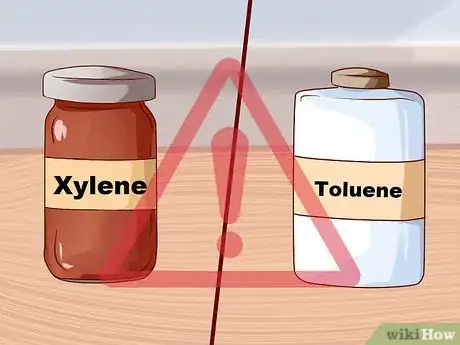




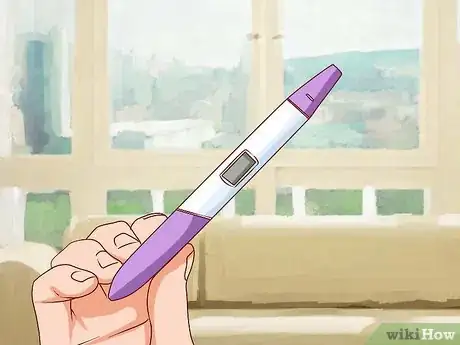













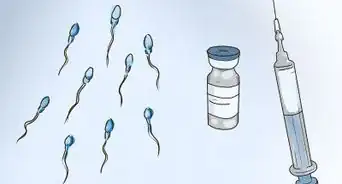

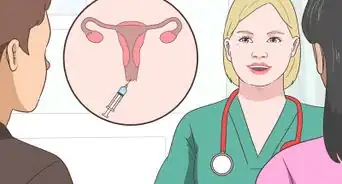
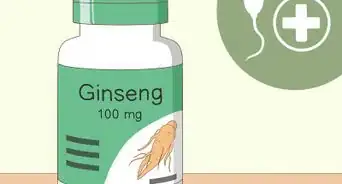
















































Medical Disclaimer
The content of this article is not intended to be a substitute for professional medical advice, examination, diagnosis, or treatment. You should always contact your doctor or other qualified healthcare professional before starting, changing, or stopping any kind of health treatment.
Read More...